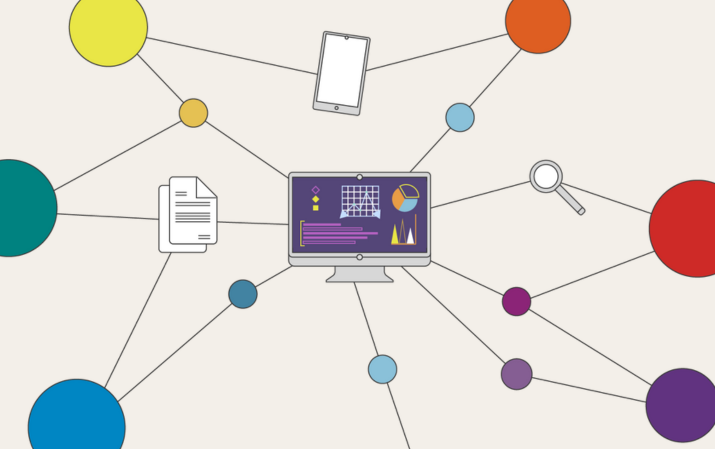Year in Review Highlights

A Message from our CEO Learne Durrington
and Board Chair Dr Richard Choong
As the dust began to settle on COVID-19, we continued to focus on our strategic priorities and vision of a more connected primary health care system for WA. Central to this is health equity and improving access to primary health care services across WA’s culturally and geographically varied communities.
![]()
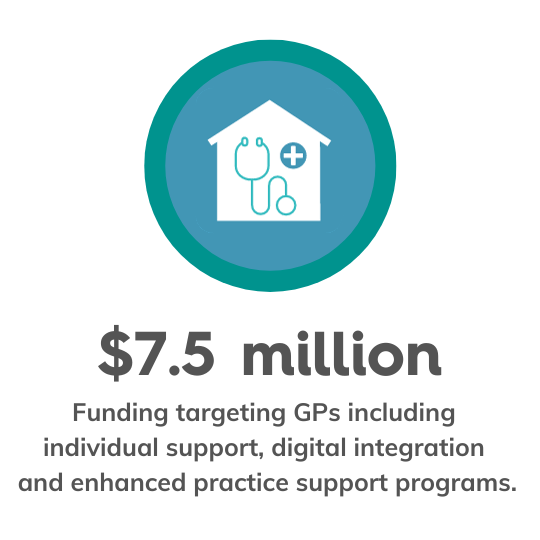
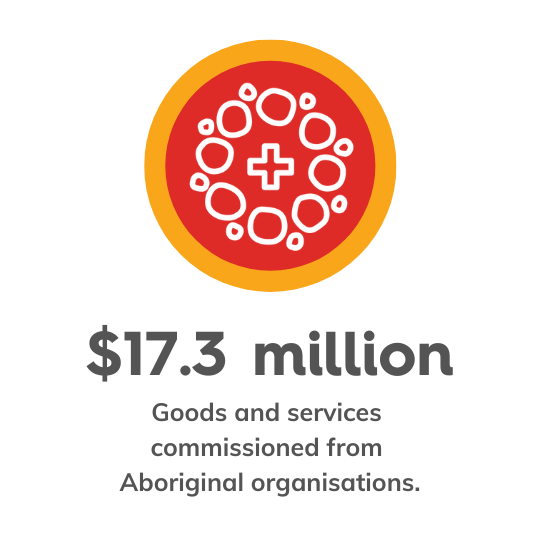
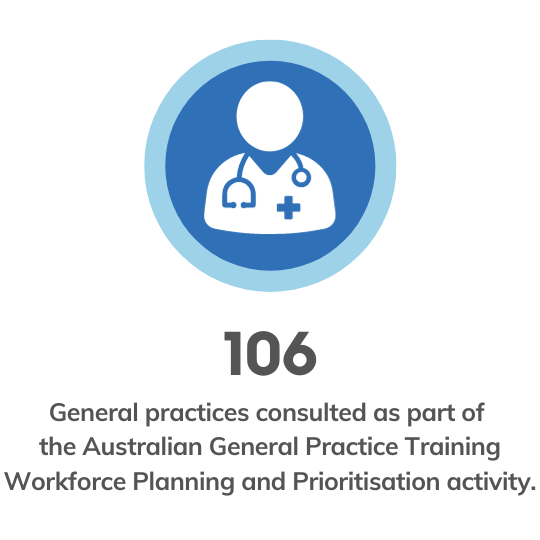
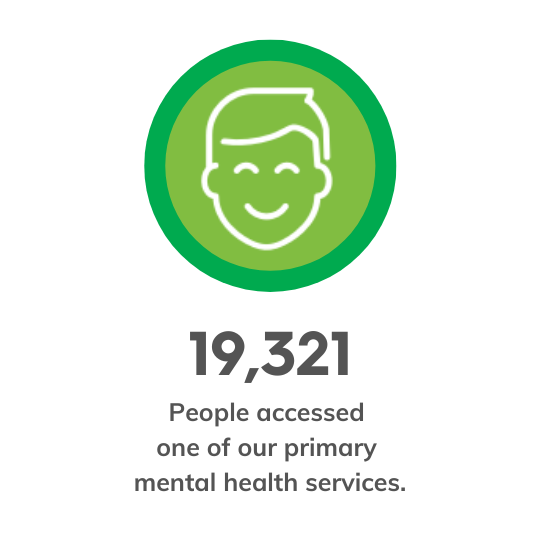
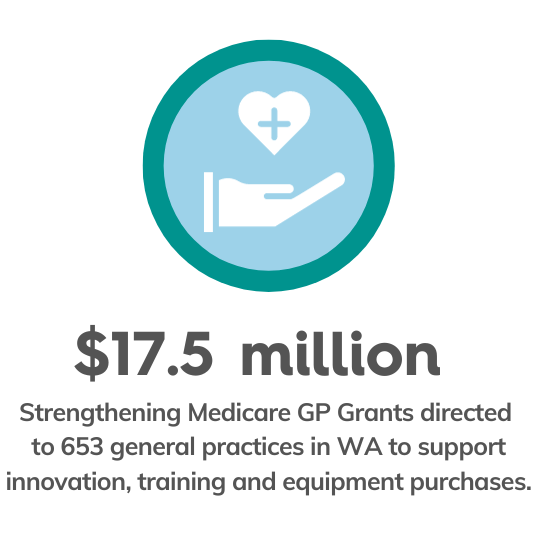
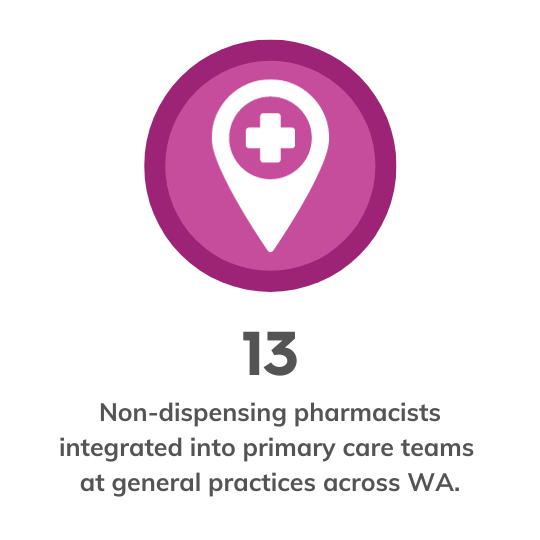
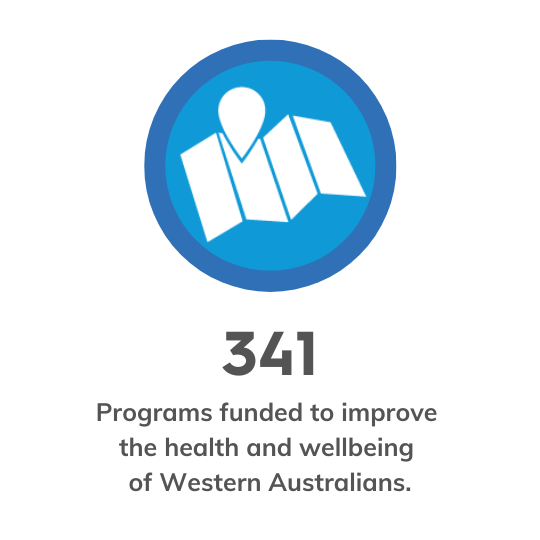
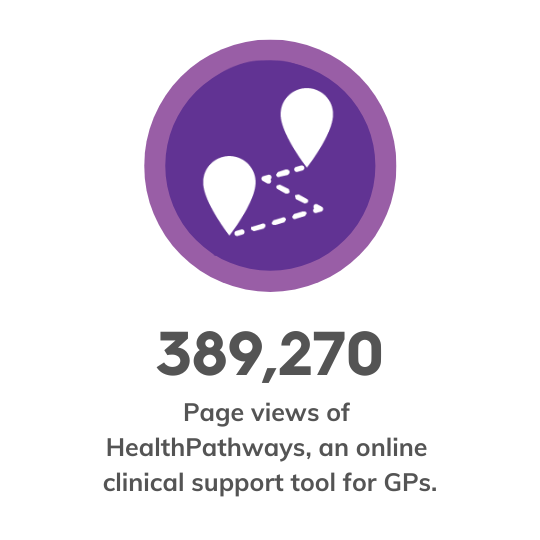
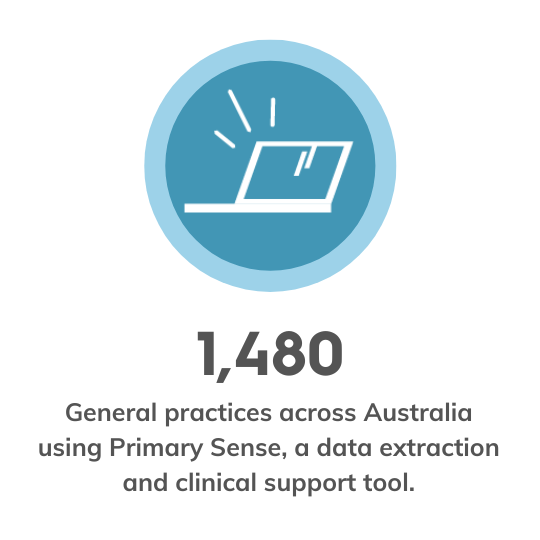
Our Strategic Priorities
Our four Strategic Priorities help us achieve our vision of a more connected primary health care system – a system that minimises barriers to accessing primary health care and ensures those with the greatest health needs are cared for as close to home as possible.
Empower people and communities Commission services in a planned and targeted way
Promote and prioritise an integrated health system Continuously improve primary health care practice

Empower people and communities
We will engage and advocate for people and communities across WA to help them be activate participants in their own health and wellbeing, improving health literacy, investing in early intervention activities, and advocating for participation in public health initiatives.
With health equity at the forefront of everything we do, we have a strengthened focus on diversity and inclusion and recognise that the most effective services are those that people feel safe and confident to use. We are committed to becoming a more diverse and inclusive workplace than we already are, so all our staff feel confident, safe and valued.
This year we launched the first two of three foundational documents that will guide our journey towards cultural competency, diversity and inclusion, being the Aboriginal Cultural Competency and Capability Framework 2023-2025 and the LGBTIQA+ Equity and Inclusion Framework 2023-2025.
Read more
We have refreshed our approach to stakeholder engagement and partnerships to make sure they are more flexible, purposeful and to encourage more meaningful input. Partnerships support our commissioning of primary health care services, building capability of primary health care, and the integration of services. The voices of all our stakeholders – communities, consumers, families, carers, health professionals and service providers – are critical to shaping our work to address inequity, identify gaps and invest in accessible, quality local care.
Read more
Together with the WA Department of Health, we released Patient First. This initiative provides resources to support Aboriginal people going to hospital and managing their health care at home after discharge, empowering them to be active, involved and informed participants in their health care.
Read more
As part of the Australian Government’s drive to increase COVID-19 vaccinations in culturally and linguistically diverse populations, we implemented a grass roots approach to increase vaccine uptake in these hard-to-reach communities, with great results.
We engaged with more than 100 organisations to access at risk culturally and linguistically diverse communities throughout the Perth metropolitan area.
Funding for 12 Perth metropolitan-based general practices to run additional COVID-19 vaccination clinics, resulted in more than 2,000 COVID-19 vaccinations being administered to culturally and linguistically diverse community members.
Rates of vaccination among culturally and linguistically diverse communities increased significantly across the state from December 2021 to December 2022, with first dose coverage increasing from 80 per cent to over 95 per cent and second dose coverage increasing from 74 per cent to over 95 per cent.
Read more
Commission services in a planned and targeted way
We will think strategically to commission services in a way that ensures primary health care is accessible to all Western Australians. In doing so, we will prioritise our funding towards services that address the barriers to access and gaps in primary health care; and target resources to support people with an increased susceptibility to adverse health outcomes. We are committed to continuously improving our commissioned services to ensure they deliver the greatest impact, measured against the Quadruple aim.
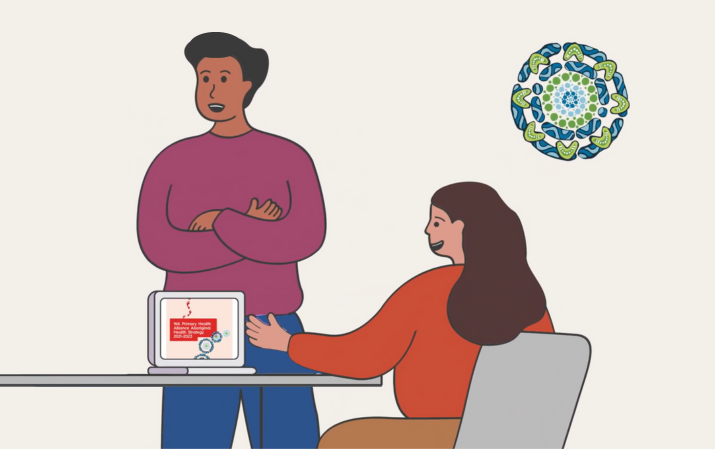
We launched our Aboriginal Health Strategy, a blueprint for strategic commissioning that will help direct finite resources to where they will deliver the most impact. Collaboration with stakeholders across the Aboriginal health sector has contributed to the depth of our understanding and ensured the Strategy reflects the needs of Aboriginal people as a priority. The Strategy also strengthens our alignment with principles of the National Agreement on Closing the Gap, such as partnerships and shared decision making.
Read more
WAPHA is leading the establishment of a network of Head to Health services in WA, to improve access to, and coordination of, mental health services delivered digitally, via telephone and face-to-face.
The Head to Health Assessment and Referral Phone Service was launched, providing statewide access to telephone-based assessment and referral to match people to services that meet their mental health needs.
In addition to the existing Head to Health Midland, planning continued for four more sites in Gosnells, Mirrabooka, Armadale and Northam, due to open in the 2023/24 financial year.
Read more
We commissioned two new headspace centres in Hedland and Kununurra, taking the total number of headspace services across the state to twenty-one.
headspace Osborne Park and Mandurah relocated to new, purpose-built centres, whilst headspace Albany expanded their centre, creating great opportunities to support the mental health needs of more young people and their families in a safe, inclusive and confidential space.
The PHN Aged Care Program has emphasised the enhanced role WAPHA has in improving the health and wellbeing of older Western Australians.
We commissioned care finder service organisations to form part of the national network of care finders who will support improved integration between the health, aged care and other systems at the local level.
In partnership with My Community Directory, WAPHA finalised the dementia community services and support finder web page. Developed in consultation with older people, this page assists those living with dementia and their carers by providing a clear and centralised resource to find dementia information.
Learn more
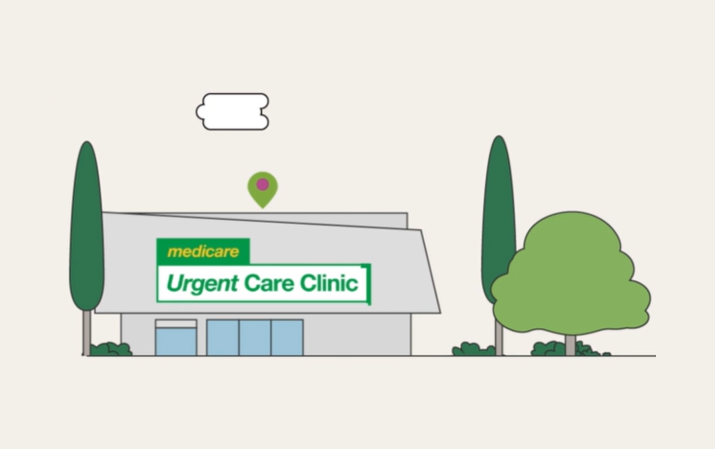
Promote and prioritise an integrated health system
We will scale up initiatives that focus on better connecting the primary health care system and greater integration with WA’s hospitals and other mutually dependent funded services. In supporting the transformation of the health system, we will adopt an approach to design and commission services that removes duplication, fosters connection and strives for seamless patient care.
WAPHA CEO, Learne Durrington, was appointed to the Australia Government’s Strengthening Medicare Taskforce, working with a group of experts and policy leaders from across the health sector to recommend improvements that will benefit patients through improved access, greater affordability and better management of chronic conditions in primary care.
Read more
WAPHA is represented on the WA Outpatient Reform Steering Committee, giving us the opportunity for primary health care to be considered in key areas of the State’s outpatient reform program which includes improvements to the Central Referral Service and Referral Access Criteria.
RACGP joins us as the other primary care representative on this Committee. WAPHA works in close collaboration with the RACGP WA representative to ensure we have a strategic position to further purposeful engagement with GPs and their practice teams across the different activities within the outpatient reform program. We have had some successes in using this joint platform to improve integration across the primary and acute care sectors. These include using the WA GP Advisory Panel to input directly to ongoing quality improvement of Referral Access Criteria development. This engagement has allowed for respectful discussions on the frustrations experienced by GPs with the process and WA Department of Health has acted on the advice from GPs on improvement opportunities.
Thirteen general practices across Western Australia have integrated non-dispensing pharmacists into their primary care teams, supporting improved patient outcomes and quality use of medications. As part of the care team, non-dispensing pharmacists deliver clinical pharmacy and education services to patients and practice staff. The learnings from this program will assist practices to embed multidisciplinary, team-based care and will provide insight into sustainability for these roles into the future.
Read more
As part of a national working group, we contributed to development of a joint submission to the Senate Select Committee on Australia’s Disaster Resilience.
The PHN recommendations included:
- PHNs to be formally recognised and included in disaster management arrangements. This includes planning, preparedness, response, and recovery arrangements.
- PHNs are adequately resourced to undertake this formal role and meet the needs of their local communities.
This submission, including some of the case studies from other PHNs, will be useful in our future strategic planning for disaster preparedness, planning and management.
Our submission to the National Stigma and Discrimination Reduction Strategy consultation draft offered broad support for the priority areas and associated initiatives outlined in the Strategy. Our feedback highlighted a greater emphasis on engaging and supporting the primary care workforce was warranted, and that given our work with general practitioners and other health services to create a better experience for consumers, Primary Health Networks are well placed to drive some of the proposed initiatives at a local level.
Continuously improve primary health care practice
We will bring a more structured and data driven approach to quality improvement and share insights to support continuous improvement across the primary health care system. We will advocate for quality and value-based primary health care that continually adapts to meet the health care needs of Western Australians, keeps people healthy, prevents disease and reduces demand for hospital services.

We directed $17.5 million in Strengthening Medicare GP Grants to 653 general practices in WA over three months as part of the Strengthening Medicare GP Grants Program. General practices have used these grants for a range of innovation, training and equipment purchases, and to improve patient access.
WAPHA supported the program through the delivery of a purpose-built, secure online grants application process. By leveraging WAPHA’s digital platforms, we built an efficient, secure, and compliant grants process that released funds to successful practices in the shortest possible time, and which can be used again for future grants initiatives.
Read more
In 2022 we piloted the first stage of the Commissioned Services Reporting Portal with a small group of service providers and used valuable learnings from the pilot to improve the Portal user interface and update the system to align with our Performance Management Framework ahead of rolling it out to more than 50 of our mental health, chronic conditions and alcohol and other drugs providers. The Portal streamlines data sharing and provides reports that we and our service providers can use to work together to enhance patient experience and continually improve primary care.
Read more
Primary Sense is a PHN-owned and operated digital health tool. It extracts de-identified health data from general practices and uses evidence-based algorithms to provide GPs with real time medication alerts, reports and patient care prompts. This supports GPs in providing patients with the right care at the right time and reducing hospitalisation rates. PHNs can use Primary Sense to access on-demand reporting to help with population health management.
Developed and used by Gold Coast PHN, Primary Sense was scaled up for broader use and rolled out to multiple regions by WAPHA over 2022-23. Primary Sense is now used by 1,400 general practices nationally and holds de-identified health information for more than 10 million patients. It has a proven track record of generating positive health outcomes, with the uptake of Primary Sense’s GP influenza prompt, between April and July 2023, resulting in an average of 62 per cent of high-risk patients being vaccinated against influenza.
In the past year, a new hypertension report has been released and two further PHNs have committed to use Primary Sense and offer it to their general practices. Primary Sense will continue to be enhanced over time. Currently, new GP reports for cardiovascular disease and childhood immunisations are in development, in addition to patient care prompts for practice nurses.
Read more
Primary Health Insights (PHI) is a highly secure data storage and analytics platform designed by PHNs to generate greater insights into population health and support service providers in driving improved health outcomes. As the lead PHN, we support PHI users to effectively use the platform as well as leading further strategic and operational developments.
Over 2022-23 the operational capabilities have been significantly enhanced, setting the foundation for PHNs to increase efficiencies, save money and learn more from their data. The first collaboration zone was established in July 2022 whereby nine PHNs securely shared mental health data to generate new insights. Over 2022-23, an expansion in the use of the PHI platform emerged resulting in the onboarding of the Australian Institute of Health and Welfare as a ‘non-member partner’ with their own lockbox.
With the receipt of additional funding from the Australian Government under the PHN Collaborative Data and Analytics Centre of Excellence Program, PHI has expanded how it is growing the capabilities of PHNs in the use of data. This has included the development of a new application (PHOCUS) allowing PHNs to securely report their performance to the Australian Government Department of Health and Aged Care, and improvements to tools for securely uploading and aggregating Practice Incentive Payment Quality Improvement (PIP QI) data files.
Read more
Sixteen of our commissioned service providers were supported with grants to undertake mental health accreditation after WAPHA introduced minimum requirements in late 2022. Introduction of these new accreditation requirements not only increases transparency and accountability in decision making but fosters a shared commitment with our service providers to common clinical governance and accreditation goals.
Read more
Two WA-based general practices, Garden Family Medical Clinic, Murdoch and Pioneer Health Albany, were selected by the Australian Government to run endometriosis and pelvic pain clinics, among 20 clinics nationally that will provide expert, multidisciplinary services and care for any woman living with one or both conditions. Lessons learnt will provide a blueprint for success for enhancing capability and capacity of other high performing general practices specialising in women’s health, endometriosis and pelvic pain services around Australia into the future.
Read more
Medicare Urgent Care Clinics are being established in WA, to enhance access to timely, high-quality urgent care services in identified regions. By leveraging WAPHA’s strong relationship with general practice, the Clinics will cater to non-life-threatening urgent care needs while ensuring strict compliance with government policies and fostering seamless collaboration with health care providers.
The first two of seven clinics opened on 30 June 2023, being Rudloc Road Medicare Urgent Care Clinic and Rockingham Medicare Urgent Care Clinic.
Recognising the critical need for trans, gender diverse and non-binary (TGDNB) people to be able access appropriate and inclusive health care, our HeathPathways WA team worked closely with specialist clinicians and representatives from the TGDNB community to develop the Transgender Health and Gender Diversity HealthPathway. Based on national and international guidelines, the pathway can help GPs to support TGDNB people to affirm their gender and address their specific health needs.
Read more

People and Culture
Creating meaningful employee experiences, encouraging continuous learning, and nurturing and developing leadership skills.
Financial Snapshot
Find out how our funding has been allocated over the past year.

